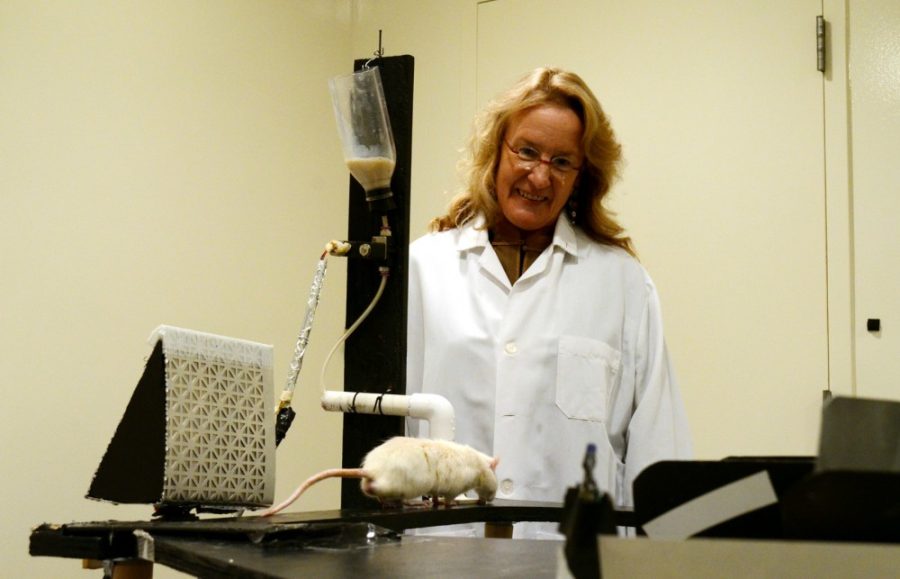A UA professor will be recognized this weekend for her innovative research on the aging brain.
Forgetting things every now and then is normal for the aging brain, according to Carol Barnes, a Regents’ Professor of psychology, neurology and neuroscience. But for decades, it has been the norm to assume the old and forgetful must be victims of a neurological disease, Barnes said.
Separating what is normal from what is pathological has been Barnes’ goal ever since she received a life-changing phone call from her mother.
“It was about my grandfather having changes in his memory,” Barnes explained. “When I went to the library to find research about aging, most of the textbooks said when you become old, you become senile.”
Her passion to study the aging brain comes from the fact that the subject has largely been ignored, and was barely even touched upon in the 1970s, Barnes said. Because she was curious about a rarely studied topic, it appeared to her that she would have to be the one to uncover new knowledge on the aging of the brain.
“My grandfather was perfectly fine,” Barnes said. “I know that now, but it took a lot of years of work to figure that out.”
The Society for Neuroscience is recognizing Barnes’ innovative work by awarding her the Ralph W. Gerard Prize in Neuroscience. Barnes will also receive a $25,000 prize and a trip to the society’s annual meeting, from Saturday to Wednesday in San Diego, where she will be presented with her award.
“The high point for me of getting this award is the recognition of the importance of the study for the aging brain in neuroscience,” Barnes said. “I’m the first Gerard recipient who has studied brain aging. For me, it’s really important that this area of science be recognized as important.”
Barnes said her goal is to teach people about the difference between a brain with a neurological disorder and a brain that is simply undergoing the normal changes that come with age.
“Just because you get old does not mean that you are going to wind up with a brain disease,” Barnes said. “Some of the cognitive and memory changes we notice, in fact, are completely normal with age.”
For the past four decades of her career in research, Barnes has studied how the brain undergoes changes with age, including changes in memory.
For Barnes, studying the normal brain is just as critical as studying a brain that has aged or a brain that is already diseased. Understanding a healthy brain and the changes that take place in a healthy person is important when working to distinguish between healthy and diseased brains, Barnes said.
“You cannot fix it if you don’t understand what is normal,” Barnes said. “By studying normal aging, we can understand how the brain goes wrong in some of these processes.”
Lisa Romero, Barnes’ colleague and senior director of communications and public affairs for the BIO5 Institute, said Barnes has become well-known for her research.
“Dr. Barnes and the brain initiative are both very important to BIO5,” Romero said. “Her work, as well as her collaborative reputation throughout Arizona and the world, is why she was acknowledged for this.”
BIO5’s goal is to encourage collaboration among different fields on research that will combat health, life and environmental challenges.
Lee Ryan, an associate professor in psychology and the associate head of the psychology department, said Barnes is a trailblazer.
“No one was studying the aging brain when she began this work,” Ryan said. “She basically began the field, and her contributions established this as the important area of research we know it as today.”
Betty Glisky, head of the UA psychology department, said Barnes’ award is a testament to work she has done her whole career.
“She’s really at the forefront of this initiative,” Glisky said. “This is something that really puts the UA on the map. She’s a superstar, there’s no question about it.”
– Follow the Daily Wildcat @dailywildcat









